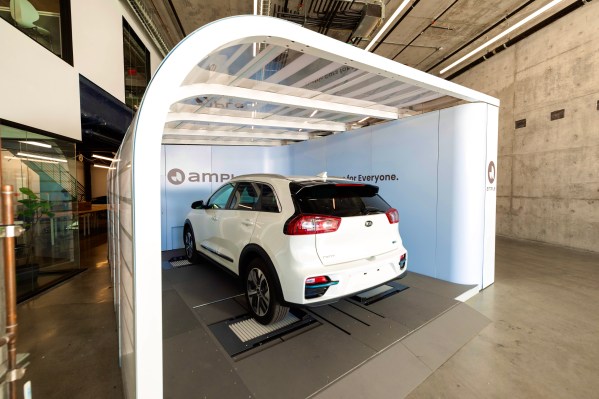

Battery swapping for electric vehicles might be a little like communism: good in theory, but so far the only place that it has really caught on is China.
Unlike communism, though, battery swapping could usher in freedom for a wide range of people, allowing them to participate in the EV transition in ways that traditional built-in batteries do not. This is why the battery swapping model keeps being revisited.
Ample is the latest example. The company announced Thursday it has partnered with Stellantis to roll out its battery-swapping technology in the automaker’s Fiat 500e city car. The two companies will start the first phase in Madrid, where 100 cars in Stellantis’s Free2move car-sharing service will be retrofitted to accept Ample’s modular batteries.
Ample has been able to refine its stations to the point where a swap takes only five minutes, about what it takes to fill up a fossil fuel vehicle. For car owners, the speed at which battery swapping can happen makes the switch to EVs that much easier. For Ample, swapping allows batteries to be recharged more slowly than fast charging, reducing electricity costs and improving the longevity of the cells.
Fleets are an obvious testbed, allowing fleet owners to maximize the uptime of their costly assets. That’s why Ample has targeted fleets first, from car- and ride-sharing customers to trucking companies. But the startup and Stellantis are exploring what battery swapping for private owners might look like.
Source link






